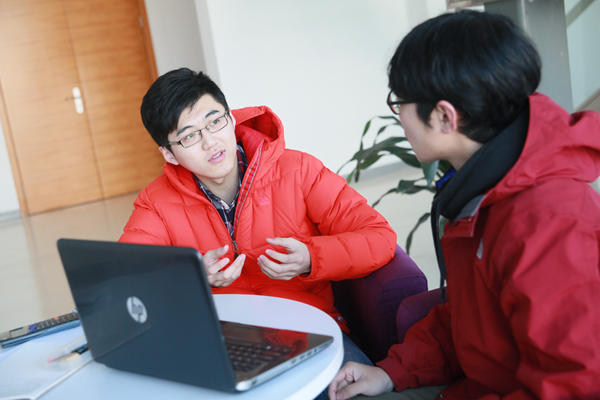27 Jan 2016
A team of students from Xi’an Jiaotong-Liverpool University has won a silver award in a university physics competition, competing against 150 other teams from around the world.
The team were triumphant at the University Physics Competition, an annual, worldwide international contest for undergraduate students. Teams from universities across the globe, including Yale University, National University of Singapore and the University of Toronto, participated in the competition.

As part of the contest, teams of three students spent a weekend, 48 hours, analysing a real-world scenario using the principles of physics before writing a formal paper describing their work. All papers had to be submitted via email before the 48-hour time limit had elapsed.
This year, a total of 18 XJTLU undergraduate students, divided into six teams, participated voluntarily in the competition and five teams completed papers. Bowen Zhang, Jin Xi (pictured above) and Kai Bao, all from the Department of Electrical and Electronic Engineering, won the silver award, along with 24 other teams in the competition.
Bowen said the silver award was beyond their initial expectations, saying: “The two-day competition was like a fight. Learning ability was especially important in solving the complex questions within a short time period.”
He recalled that they during the competition they ate takeout food in a small classroom after which they would continue to research, read papers and discuss, sometimes not going to sleep until 3 or 4am. Bowen said that he hoped more XJTLU students would take part in the international competition and win an award.
Staff members from the Department of Mathematical Sciences supported students in the process, while registration and organisation was coordinated by the student association the Physics Club.
Mathematics lecturer Changcheng Zheng said: “It is challenging for undergraduates to complete the tasks within 48 hours. Each question only provides brief background information and basic requirements. Participating students need to research, analyse the physical process, build a model, do numerical calculations, and analyse the obtained results rationally. This competition tests students’ abilities to understand, analyse and solve problems. It also requires good teamwork to complete the task. Our students are good enough to compete with other overseas teams and win an award. I think they are excellent!"
27 Jan 2016








